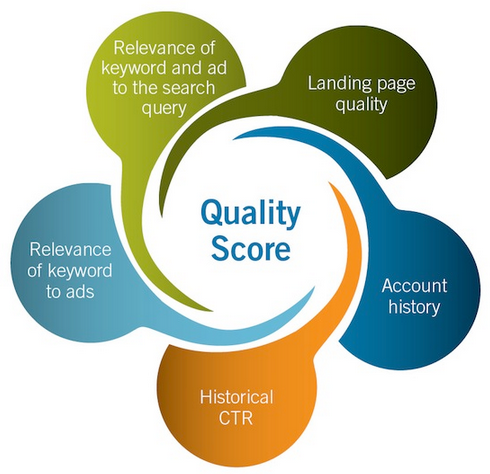CommonPlaces is pleased to present a special Guest Blogger post from our friends at Dynamic Search Online Marketing Solutions. We hope to present more guest posts from partners and friends across the spectrum of the digital world. Please feel free to contact us directly, if you would be interested in joining our guest blogging program.
PPC campaign management is a mixture of science and art. There is also a bit of luck mixed in there, too, but you can’t always rely on that, so it is essential to understand the science behind the process in order to increase your chance of success. Still, one of the hardest things for many people to understand is how quality score affects your ads; let alone how to improve it.

While there are a number of PPC factors that are completely out of your control, quality score isn’t one of them. By learning what that means, how to manage it, and how to improve it, you can take better control of your PPC campaigns.
What is Quality Score?
In a nutshell, quality score is a measurement of the quality, relevance and overall performance of your PPC ad campaigns. Your success and the profitability of your ad campaigns are highly dependent on your quality score, because it influences both the relative position of your ads, as well as the cost of each action.
Quality score is a function of many factors, but here are the four main ones:
- Relevance of your ads to the keywords you choose
- Relevance of your ads to the landing page
- Historical performance of your overall account
- Click-through rate
Now let’s analyze how to adjust your campaigns in these areas in order to improve your quality score.
Improving Quality Score
Keywords – The foundation of your campaign is the keywords that you choose. This is also a huge factor in determining your quality score. If you choose a popular keyword, but it has little to do with your actual products or services, your quality will be considered low.
On the other hand, if your keyword selection accurately defines what you are offering, then you will have a higher score.Just picking popular or general keywords isn’t sufficient. For example, let’s say that you sell professional cat grooming supplies. Choosing general keywords like ‘cats’ or even ‘cat grooming’ don’t really give a specific enough definition of who you are. ‘Cat grooming’ could also apply to a grooming service or to home grooming supplies.
A long-tail keyword like ‘professional cat grooming supplies’ will have a higher quality score since it accurately and precisely defines your offering.
Keyword grouping – Another way to increase relevance is to group your keywords into specific themes. Each group of keywords should be just as specific and targeted as the individual keywords mentioned above. To continue with that example, a group that contained ‘cat,’ ‘grooming’ and ‘supplies’ would not score as highly as ‘professional cat grooming supplies,’ ‘professional cat grooming products’ and ‘cat grooming aids’ since the first terms are still not specific enough.
Quality ads – Once you have built a hierarchy of keyword groups, you need to write a quality ad that specifically addresses each of those groups. This is the first step in creating a quality ad. Write something that explains what you are trying to sell and why that search term caused your ad to display.
Landing pages – Once you have your ads prepared, the second step is to develop a high quality landing page that directly relates to both the keyword group and the related ad. In our example, if we had a group and ad for cat brushes, then we should have a detailed, high quality page dedicated to cat brushes.
Tying it All Together
With all of the pieces in place, the quality score should begin to improve. It won’t reach its final position, however, because there are still two more pieces to the puzzle.Click-through rate – Another measured statistic is the amount of times a person actually clicks on your ad in relation to how many times it displays. For example, if you get 1 click for every 1000 times your ad displays, your quality score will be much less than if you get 50 clicks for the same 1000 impressions.

Historical performance – Another measurement is the historical performance of your account. In other words, if the quality score of all of your groups and campaigns is high, it will positively impact the quality score of each of them. If you only have one quality ad out of many, your overall quality score will be lower.
Asher Elran: A practical software engineer and a marketing specialist. CEO at Dynamic Search and founder of Web Ethics. Asher is enthusiastic about all things concerning killer content, creative marketing, and CRO.


